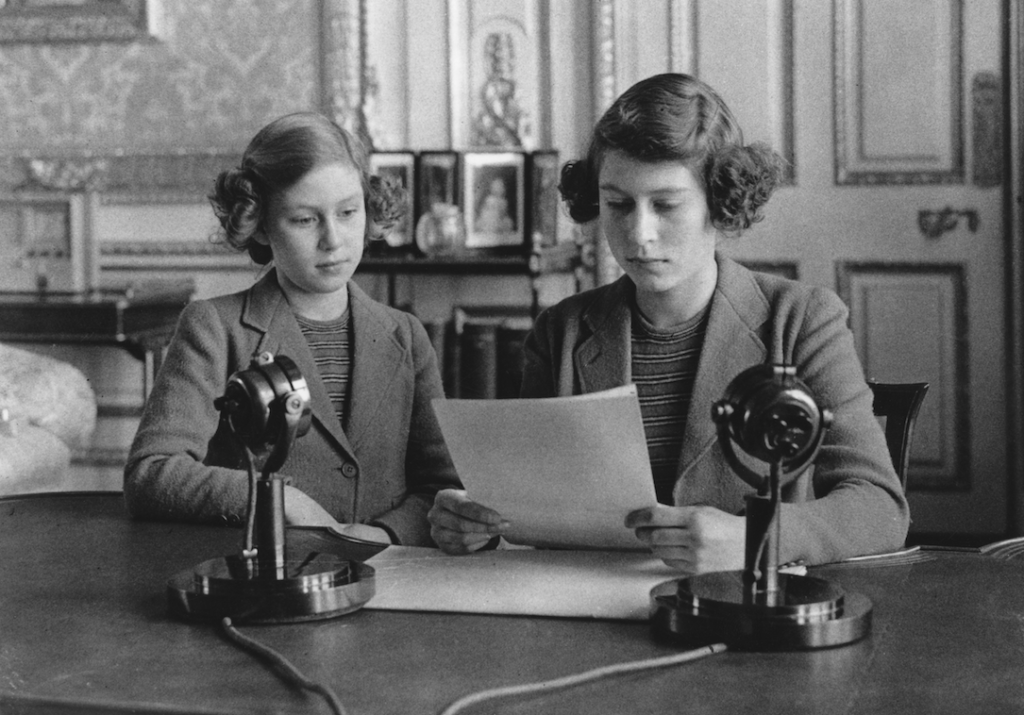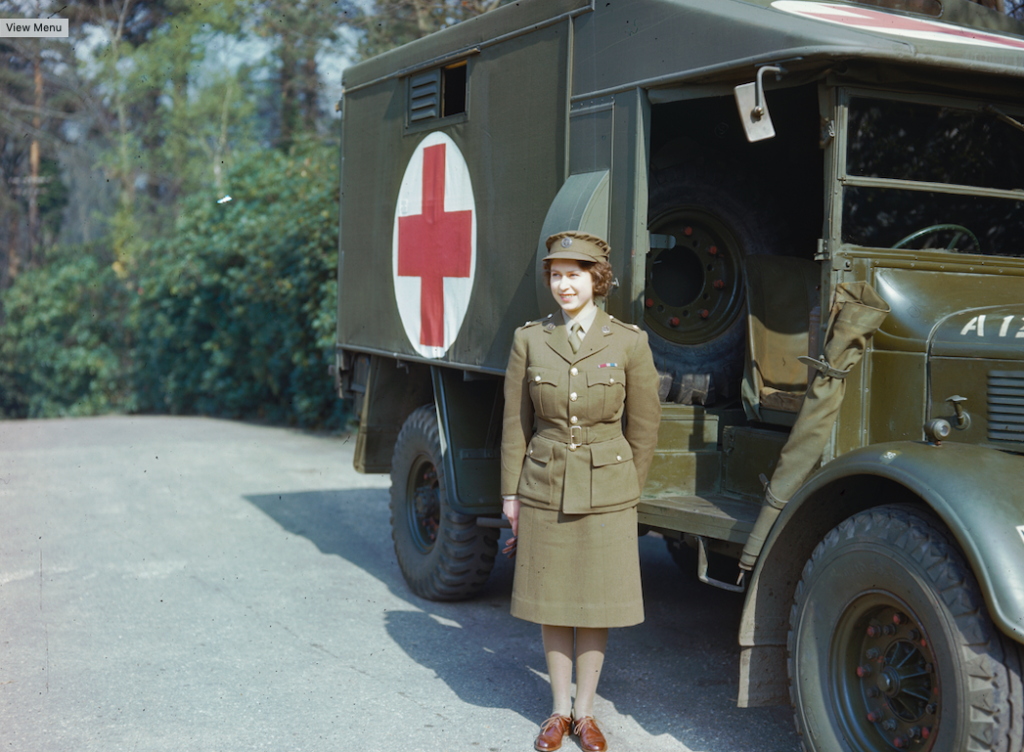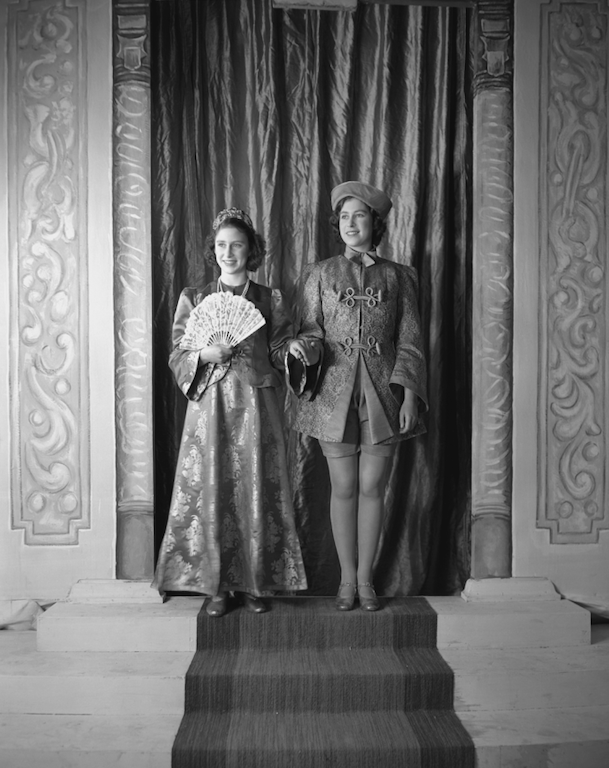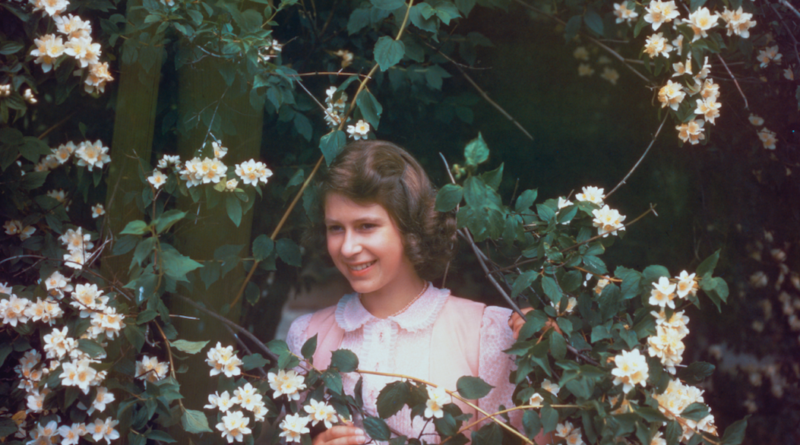INTERVIEW: New PBS doc explores Queen’s unique role during horrors of WWII
Photo: The Queen at War looks at the influential years when Queen Elizabeth was a princess and the world was at war. Photo courtesy of Lisa Sheridan / Stringer / Getty Images / Provided by PBS pressroom with permission.
Although so much is known and written about Queen Elizabeth II and her many decades of reign in the United Kingdom, there are still some chapters of her life that remain largely unknown to the inquiring public. That might sound like an invitation to scandal, but it’s actually far from it.
The Queen, back when she was a princess and living with her parents King George VI and Queen Elizabeth, played a unique and instrumental role during the horrors of World War II. As Winston Churchill was serving as prime minister and her father was giving radio messages to his subjects, the young Elizabeth was coming of age and realizing the weight of the crown upon her head. Her every move was in the spotlight, and it soon became clear that she and her sister were models for how children should stand strong during the war effort.
The then-princess took her responsibility quite seriously, making radio addresses to the children of the world and even signing up to join the military. She was a royal at war, someone who did not shirk from her duties and stood up to the rise of fascism in Europe. Along the way, she also found her prince.
This incredibly interesting chapter in her life is the subject of a new PBS documentary called The Queen at War, which premieres tonight, May 5 at 8 p.m. The one-hour film, narrated by Downton Abbey’s Phyllis Logan, allows for a different look at the longest-reigning monarch in British history.
Recently Hollywood Soapbox exchanged emails with executive producer Chris Granlund. Questions and answers have been slightly edited for style.
What inspired the creation and development of this documentary?
We were keen to find a new way to mark the end of the Second World War in Europe and found that the story of the royal family at war hadn’t been told very thoroughly. As we progressed with our research we were pleased to find that there was so much to say about the experience of the queen herself, so we narrowed the focus down to her. We then discovered that you could find the origins of many of her traits as monarch in the wartime experience: stoicism in the face of adversity; awareness of the power of the media — and especially the direct broadcast to the people; a strong sense of duty; and a powerful connection with the Empire that was to become the Commonwealth. The fact that there’s a surprising little love story in there was an extra bonus.
Where did the team pull all of this archival material from?
The archive producer explored everything that was available from BBC to Pathe and also managed to find some home movie footage of people close enough to the royal family to have had access to Princess Elizabeth as a child and teenager. It was exciting piecing all of this together to tell such a multi-layered story.



Do you think this story is largely unknown to many people both in and out of the United Kingdom?
One of the great things about this project is that possibly the most famous woman in the world is at the heart of it, and yet we know so little about her childhood and adolescence. In that sense I think we found new angles for both British and American audiences — even keen royal fans have told me how much they learned that was new to them.
What do you think it says about the Queen that she served in the military as a princess?
I think the fact that she pleaded with her father to be allowed to serve is the most significant factor here. The King had many reasons for saying no. And at first that’s exactly what he did say. But she persisted. She really wanted to serve, and that desire to serve is the foundation of her success as head of state.
Why do you think so many people are interested in the lives, both public and private, of the royal family?
We live in an age of celebrity, and that might have left the royal family stranded in the past and irrelevant. Instead they have adapted to the mass media and found new ways of connecting with the people. They’ve always managed to preserve some mystery about what they are ‘really’ like, and that adds to the appetite for information. This is very tantalizing. I think there’s also a sense that they are an antiquated institution that defies all democratic logic, and yet, due largely to the Queen’s class act, they remain popular and effective both at home and abroad.
How do you think Phyllis Logan’s narration adds to the story?
Phyllis Logan has a wonderful quality that also shines through in Downton Abbey’s Mrs. [Hughes]; she has integrity and authority, but there’s just a slight hint of mischief or irony that draws you in and makes you feel that she’s pulling back the curtain just a little to reveal a little more.
Do you think the royal family is as important today as they were during these historic times in the 20th century?
I think the Queen has proved that she is by her intervention in the Covid-19 crisis. With one simple broadcast she managed a master class in communication that revealed the weaknesses of the government’s own communications strategy. Just by using the four words: ‘We will meet again,’ she connected the nation back to one of its darkest hours when against all odds (and with the help of the USA!) we came through.
By also referring to her childhood broadcast to evacuated children across the Empire she reminded us of the line of continuity she represented. She’s now a symbol of endurance as well as everything else. This makes this film feel oddly timely in a way that we could never have imagined when we were making it. The Queen seems to have an ability to pull off that conjuring trick or alchemy in a way that nobody else can.
By John Soltes / Publisher / John@HollywoodSoapbox.com
The Queen at War will premiere tonight, May 5 at 8 p.m. on PBS. Click here for more information.

